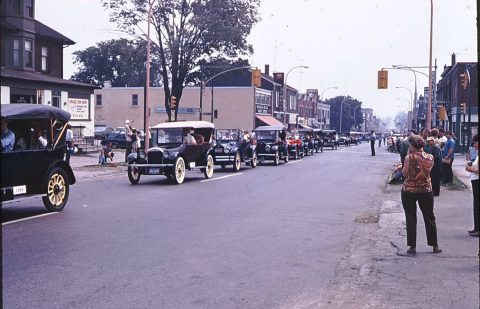By: Raechel Bonomo
The career of an artist is contingent on change and evolution. An artist may grow through, or in reflection of, societal deviations and of course, the ones within themselves. Like Picasso in his Blue Period, in which the artist drew inspiration from poverty and his own personal suffering, these vicissitudes often reveal themselves through creation of work and are then consumed by the audience. But eventually, things for Picasso changed and subsequently so did his work – made evident by is successive Rose Period.
Art has the power to create a dialogue between its creator and its viewer. It’s a special kind of relationship, one that artist, writer and curator Margaret Rodgers developed with Painters 11 member, Alexandra Luke (1901 – 1967) through her work.
Luke has been a familiar face in many of Rodger’s projects, from her 1995 book, Locating Alexandra, to most recently as a guest curator of Legacies: Luke, McLaughlin, Donovan and MacGregor, currently on exhibition at the Robert McLaughlin Gallery (RMG).
When Rodgers first began exploring the life of Alexandra Luke [born Margaret Alexandra Luke], she believed that her and Luke were quite similar.
“I thought, ‘my name is Margaret too, I work in my attic too, came to artmaking as a professional later in life [and also] juggle family and other duties,’” says Rodgers. “Upon deeper study, I came to see the enormous gulf between an Oshawa society matron, married into the McLaughlin family, and middle-class me.”
This initial draw is what led Rodgers down the rabbit hole of what she describes as a “fascinating” fall through Luke’s work and life. In Legacies, Rodgers worked with contemporary artists, Teri Donovan and Gwen MacGregor to create modern work that reflects and celebrates the career of Luke and her contemporary, Isabel McLaughlin (1903 – 2002).
“Connecting the past to the present sets up a level of identification and understanding that enlarges the experience for everyone,” says Rodgers. “Luke and McLaughlin have a new audience in contemporary terms while Donovan and MacGregor can connect to the historical.”
As a curator, Rodgers found herself armoured with the variety and form that various kinds of artistic talent can take.
“I had no idea what each artist would decide to do, and invited them because of the kinds of work they had previously made,” says Rodgers. “Both Donovan and MacGregor rose to the challenge of riffing off Luke and McLaughlin. I like the way that Donovan has chosen to flesh out the life stories of Luke and McLaughlin, while MacGregor has created a path forward in two inclusive and diverse projects that speak to a variety of gender-related issues. I couldn’t be more pleased with the exhibition.”
Often in Rodgers’ own work, she reaches back into history and pulls out inspiration, merging it with current societal themes, such as socio-historical issues and systems of belief and cultural traditions.
“I have a deep interest in our local heritage and have done a fair amount of work that relates to Oshawa’s past,” says Rodgers. “Right now, I’m digging into my own family history to look at how people lived in late-Victorian/early 20 century Canada and making connections between life in small-town Ontario and how we live today.”
Even after a successful career as a writer, artist and curator, Rodgers isn’t retiring any time soon. Although she has declared that isn’t “hitting the ground running each day” anymore, there’s no stopping the ever-evolving work of Margret Rodgers.
“Each series [I’ve done] has engrossed me when I was doing it, and then once it’s been realized, there is a fadeout to make room for the next thing.”
You can catch Legacies: Luke, McLaughlin, Donovan and MacGregor at the RMG now until January 7, 2018.

